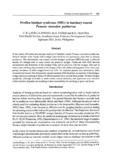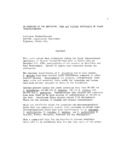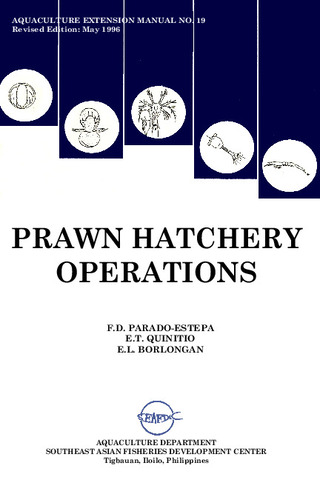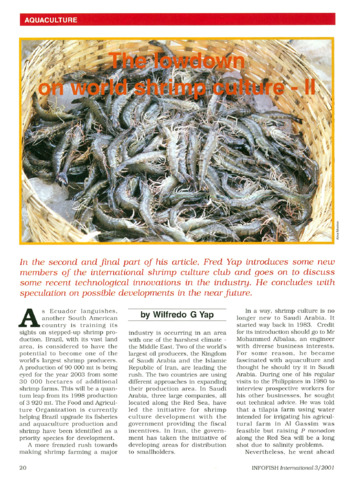Swollen hindgut syndrome (SHG) in hatchery-reared Penaeus monodon postlarvae
Share
Abstract
In the course of routine microscopic analysis of hatchery-reared Penaeus monodon postlarvae, several batches were found with hindgut abnormalities not previously described in shrimp postlarvae. The abnormality was named swollen hindgut syndrome (SHG) because it affected mainly the hindgut. Postlarvae with SHG showed enlargement and distention of the hindgut folds and its junction with the midgut, although in some cases swelling also occurred in the midgut of the sixth abdominal segment. Over a five-year period, the yearly prevalence of SHG ranged from 6 to 13% of all batches examined. No seasonal pattern was observed as SHG occurred year-round. Despite the numerous samples obtained, SHG has not been associated with specific predisposing factors in the hatchery. The abnormality caused cessation of the rhythmic movements of the hindgut-midgut junction resulting to failure of affected postlarvae to excrete fecal pellets. Swollen hindgut syndrome, although reversible to some extent, caused mortality and significant size variation within batches of postlarvae resulting in their unsuitability for stocking in grow-out farms.
Suggested Citation
Lavilla-Pitogo, C. R., Paner, M. G., & Traviña, R. D. (2002). Swollen hindgut syndrome (SHG) in hatchery-reared Penaeus monodon postlarvae. In C. R. Lavilla-Pitogo & E. R. Cruz-Lacierda (Eds.), Diseases in Asian aquaculture IV: Proceedings of the Fourth Symposium on Diseases in Asian Aquaculture, 22-26 November 1999, Cebu City, Philippines (pp. 151–158). Quezon City, Philippines: Fish Health Section, Asian Fisheries Society.
Subject
Taxonomic term
Collections
Related items
Showing items related by title, author, creator and subject.
-
An overview of the nutrition, feed and feeding techniques of prawn penaeid/shrimps
Piedad-Pascual, Felicitas (Philippine Council for Aquatic and Marine Research and Development, 1989)This paper echoes what transpired during the first International Conference of Penaeid Prawns/Shrimps held in Iloilo City in December 4-7, 1984, particularly on the Nutrition nd Feed Development. Around 25 papers were ... -
Prawn hatchery operations
Parado-Estepa, Fe D.; Quinitio, Emilia T.; Borlongan, Emeterio L. (Aquaculture Department, Southeast Asian Fisheries Development Center, 1996-05)The manual, an updated version of the 1984 SEAFDEC/AQD manual, presents the underlying principles and step-by-step instructions of prawn larval and post-larval rearing. The techniques described are not only applicable to ... -
The lowdown on world shrimp culture - II
Yap, Wilfredo G. (INFOFISH, 2001)This paper introduces some new members of the international shrimp culture club and goes on to discuss some recent technological innovations in the industry, particularly the polyculture of tilapia (mainly Oreochromis ...






